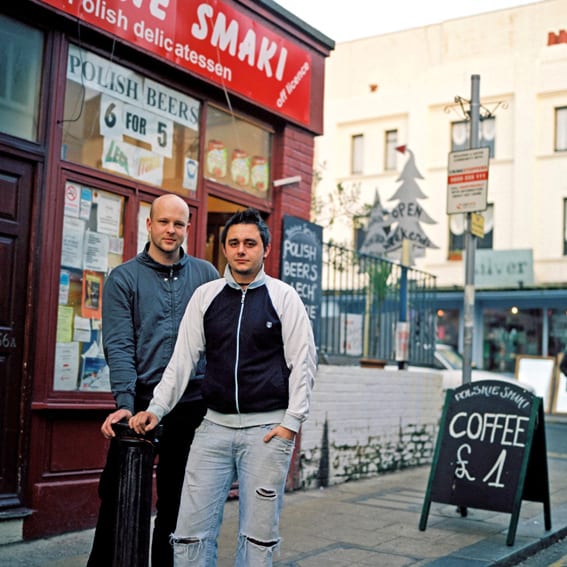Photographs of Brighton’s migrant workers taken by University of Brighton alumni Julia Horbaschk are on display at Worthing Museum and Art Gallery.
The shots, taken from Julia’s ‘Labour of Love’ collection, form part of the Safe European Home? exhibition which runs until 13 October 2018.
The show is a tribute to local artist Damien Le Bas, who died in December 2017, and also consists of work by Damien’s wife Delaine and the pair’s friend Alex Michon.
Julia and museum curator Emma Walder are giving a public talk this Saturday (July 28) at 11.30am. Entry is free.
The portraits that feature in Julia’s display were taken in 2007 and 2008, after Romania and Bulgaria joined the EU with some labour restrictions. Julia, a German immigrant to the UK herself, wanted to provide a “balanced view of migrants”.
She said: “With the large influx of Eastern Europeans in Brighton I made it my task to find out more about them and portray them as part of our community. I came here as a migrant worker myself in 1999 and I felt empathy with them.
“Brighton is usually quite a liberal place and it’s relatively small and at the time it had experienced a boom of migrant workers from Eastern Europe, so I was quick to find them and connect with them.”
Julia eventually compiled all of her photographs – taken in various spots around Brighton – into a book, ‘Labour of Love’. She said the collection has taken on new relevance in the light of Brexit. Her museum display includes letters from her original subjects describing their feelings about the EU referendum vote and its aftermath.
Julia said: “It felt like the right moment to get the prints out of the attic and into the public sphere again and perhaps speak about what migrant workers are going through.
“Although many of the people I photographed are still here, most of us have thought about what it would mean to leave the UK – particularly shortly after the vote as for a long time we had no knowledge of what would happen.
“Others were deciding out future and we had no say in it. Many of us have made a huge effort to contribute and integrate into UK society and we left our own countries behind a long time ago. Are we still welcome here?
“My work probably raises more questions than it gives answers but that’s ok.”
Julia studied Photography at the University of Brighton, which she said gave her the “freedom and space to learn and grow”. She also met her now husband Mark Pawlak at the University.
She added: “The University, with its fabulous libraries and great lectures provided me with much food for thought and added meaning to my work. I wouldn’t change my experience for anything.”
Of her adopted hometown, Julia said: “I always knew Brighton was a special place, from the first time I walked down Queens Road with the sea lapping away between the Victorian buildings and the ever-changing light and sky. It’s a photographer’s dream come true.”
More information about the exhibition

